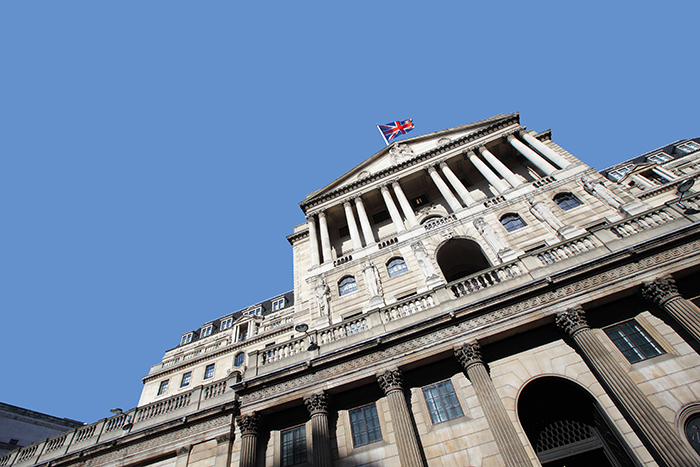
The Bank of England will begin stress testing the UK’s seven largest banks and building societies to study their resilience against severe market shocks.
The central bank says the tests involve how the lenders would stand up to “deep simultaneous recessions in the UK and global economies, large falls in asset prices, higher global interest rates, and a stressed level of misconduct costs”.
One of the scenarios involves UK house prices tumbling by 28%.
Barclays, HSBC, Lloyds Banking Group, Nationwide, NatWest Group, Santander UK and Standard Chartered will take part in the study. These institutions account for 75% of lending in the UK real economy.
It adds that the purpose of the programme is to “enhance financial stability and promote the safety and soundness of UK banks.
“By doing so the Bank aims to ensure banks can absorb rather than amplify shocks and have the capacity to continue to serve UK households and businesses”.
This analysis, which will take place every two years, replaces the annual cyclical scenario, carried out every 12 months, and will be monitored by the Financial Policy Committee and Prudential Regulation Committee.
Financial catastrophes that are part of the test include:
- UK residential property prices fall by 28%
- UK GDP falls by 5% in the early part of the scenario
- World GDP falls by 2%
- UK unemployment almost doubles to a peak rate of 8.5% in the third year of the scenario, similar to the peak level experienced in the global financial crisis
- World trade falls by 20%
- Oil and gas prices rise sharply
- Inflation peaks at 10% before falling back to the 2% target by the end of the scenario
- Bank rate is increased to a peak of 8% and is then lowered over the scenario as inflation returns to the target
Broadstone risk director Rahul Choudhary says the appraisals, “follow significant global economic shocks such as the global pandemic, the surge in interest rates and significant volatility in markets, currencies and supply chains.
“In this context, many of the stress tests like a sudden drop in global or UK GDP, sharp price rises in oil and gas and a property crash suddenly seem more relevant.
“The Bank has committed to holding a stress test every other year moving forward which should provide reassurance around the resilience and capital strength of the UK’s banking sector.”
The results will be published in the fourth quarter of the year, the Bank says, and will be used “to inform the setting of capital buffers for the UK banking system and individual participating banks, and to inform a broader understanding of risks in the banking system”.



